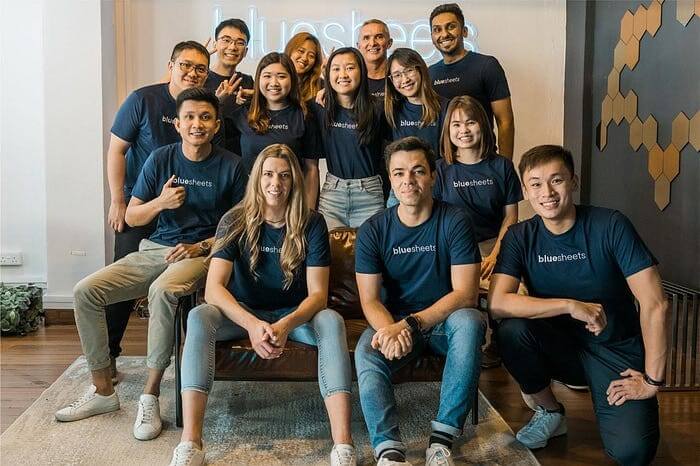
BLOG
ask a VC: SeedPlus

share:
We’re speaking to Singapore’s leading VC funds to find out about their thoughts on the current state of the Southeast Asian startup and venture ecosystem, and what they currently are looking for in companies.
This week we’re speaking to Michael Smith from seed venture firm SeedPlus.
how is the Southeast Asian tech startup and VC ecosystem looking in 2019?
The region is now on the map globally, with plenty of LPs investing into Singapore and Southeast Asia. We now have startups who are hugely popular like Grab and GoJek, and we also have Southeast Asia businesses that are starting to do global business themselves.
Over the last 2-3 years, you might have had to explain to people overseas what was happening in the region – but I find myself not having to explain that anymore. Southeast Asia now has global fame.
There’s also traditionally been a lot of focus on the first and second tier cities in the region: Singapore, Kuala Lumpur, Bangkok, Jakarta. What’s changed this year is that people are digging into cities in the Philippines and Vietnam, which would have been too fringe for many VCs in the past.
what are the strengths and weaknesses of the ecosystem?
Having worked in Thailand, Hong Kong and China as well as Singapore, I’m a huge cheerleader for Singapore. The Singapore government has put a lot of wheels in motion to support the ecosystem, more than any other country in the region.
An example is the VC matching programmes. They contribute a lot of capital to startups that we invest in. This goes a long way to de-risk investing in the earliest stages. There are tax incentives for angel investors. Ease of incorporation is also a huge strength, and banking. At all levels, it’s easier for the various players in the eco-system – the non-professional investor, the professional investor, the founder – to participate in Singapore’s startup ecosystem.
what kind of startups are catching your eye. How has that changed in the last 12 months?
When we look around the region, we notice that each country is at a different stage. For instance, in Singapore, infrastructure isn’t a huge problem any more, it’s relatively stable. When you compare that to the infrastructure in Indonesia, it’s not all fixed yet. There is still a lot of opportunity there.
Our investment thesis is around more technical products, as well as infrastructure and logistics. We think there’s a myriad of issues to solve, such as around fleet management. There’s a huge opportunity for this in Indonesia, less so in Singapore.
last time we spoke, SeedPlus talked about a lot of first time founders and that you all were spending a lot of time on the basics – has this changed? Is the scene getting more sophisticated?
The ecosystem has definitely matured, Our preference is for second-time founders, which has become a lot more common. An example of this is Travelstop, which has the team from travelmob (acquired by Expedia). They worked for the acquiring company for a time, and then they started their own business again.
There is still some degree of education involved though, which is why we’ve launched Project Alpha – an event series designed to inspire and target high potential budding startups.
We have noticed that in the core cities, the questions are more sophisticated. In more nascent markets, you might have more basic questions like, “I have six founders, how do I do my first round?” And we have to explain that with that sort of structure, it’s going to be harder down the road to raise funds and be a desirable company to invest in.
But the good news is, even in these nascent markets, we’re starting to get heroes, like Coins.ph in the Philippines. Having these visible local heroes helps. It encourages people who go on to found their own companies.
has the series B crunch been resolved?
We have noticed more A and B+ series, whereas a few years ago it was more concentrated on the institutional seed stage.
There are a few things at play here. If a founder is struggling, they’ll speak of a ‘crunch’. But the reality is, there’s more capital now than ever. We do know that almost every single local fund is on their second or third fund by now. If a business is good, it’ll find the capital it needs.
Round sizes are also getting bigger and more expensive. As the home grown funds are getting bigger, the propensity is to move to later stage deals. That said, there are still a few ‘pure’ seed firms around like SeedPlus, Wavemaker, and Cocoon, to name a few.
any predictions for the SEA ecosystem over the next two years?
It’s tough to say. We may run into some global issues – Southeast Asia isn’t immune to it – things like China’s trade war is having some effect on local firms.
Aside from that, Southeast Asia is going to continue to grow a lot, with second and third-tier cities getting more attention. I also would like to see more later-stage SEA startups acquiring smaller startups. It would be good for the ecosystem to see more exits, not only because it allows VCs to provide returns to LPs (limited partners). Returning money cycles back into new funds, which means more money to invest in more companies. It’s a virtuous cycle.
Are you looking to raise funds for your startup in Southeast Asia? Our team of lawyers are market experts in tech and VC. We’ve gained this experience the only way that works – by doing deals (hundreds of them) and by immersing ourselves in the tech ecosystem.
If you need help with your term sheet or have questions about raising your round, book a time to speak to one of our lawyers.
explore our other blog posts

